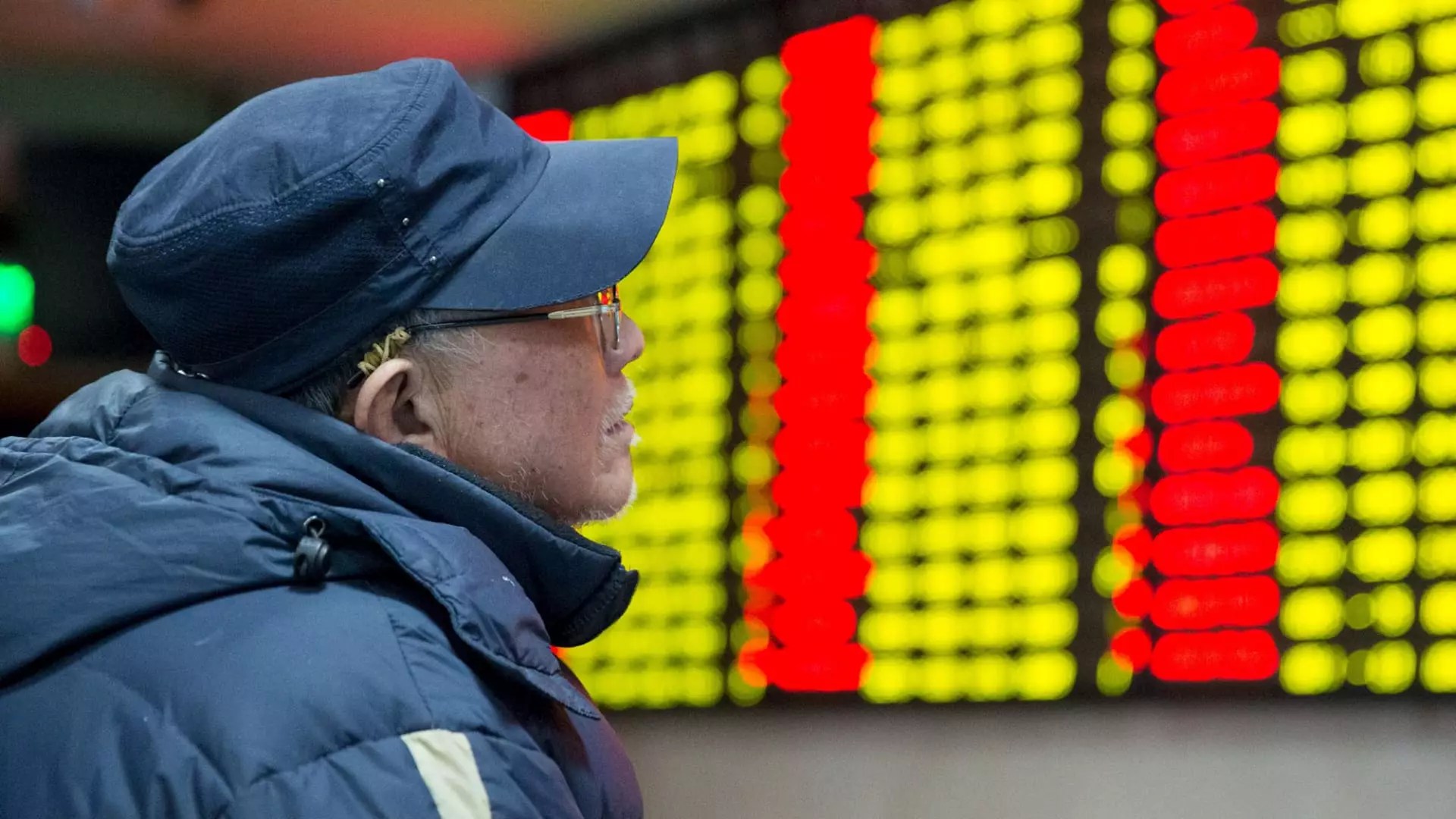The recent resurgence of China’s stock market has taken analysts and investors alike by surprise, presenting an intriguing scenario in an environment already fraught with uncertainty. As the government unveiled a series of initiatives aimed at stimulating economic growth, a wave of optimism has rippled through hedge funds and investment strategists, who are now pivoting towards what was previously deemed an improbable investment opportunity.
The CSI 300 index, which reflects the performance of stocks listed in Shanghai and Shenzhen, experienced an impressive weekly gain of over 15%, boasting its best performance since 2008. Prior to this unexpected uptick, the index had languished near six-year lows, leading many to bank on its further decline. However, the reversal indicates a critical sentiment shift among investors. According to a report from led by JPMorgan’s chief China equity strategist, Wendy Liu, the recovery of stocks tied to strong businesses often occurs before comprehensive market rebounds. This would suggest a strategic opportunity for discerning investors willing to act ahead of the curve.
In response to this developing situation, investment strategists have begun to spotlight select stocks they’ve deemed undervalued. Prominent among these are well-known names like Tsingtao Brewery and Zhejiang Dingli, highlighting a confluence of factors that make these companies appealing, not just during these turbulent times, but potentially in the longer term.
The new enthusiasm surrounding Chinese stocks is increasingly infectious. Rupal Agarwal, an Asia quantitative strategist at Bernstein, emphasized in a note that current market conditions present a re-entry point into Chinese equities. However, she counsels caution, suggesting that clearer indicators pertaining to property and consumer sentiment before adopting a more aggressive stance would be prudent. Concurrently, Bernstein identifies companies such as Tal Education and Seres as beneficiaries of burgeoning domestic demand. The deliberate focus on firms trading significantly below their peak values underlines a strategic approach to navigating current market volatility.
Adding weight to this sentiment, prominent hedge fund manager David Tepper articulated his confidence on national television, asserting that he had boosted his holdings in Chinese stocks, citing that Beijing’s internal policy adjustments have rendered Chinese equities comparably more attractive than their U.S. counterparts. Tepper’s perspective underscores a fundamental belief that market prices could diverge significantly from actual growth potential, representing a compelling investment narrative.
Market sentiment began to shift noticeably after remarks from Pan Gongsheng, Governor of the People’s Bank of China (PBOC), who announced interest rate reductions in conjunction with other influential leaders in a rare press conference. The subsequent meetings, which included Chinese President Xi Jinping, reaffirmed a collective drive to stabilize the economy, including specific measures aimed at addressing the ongoing slump in real estate. Such policy reassurances provided a much-needed boost to investor confidence and set the stage for a resurgence in trading activity.
Scott Rubner, a tactical expert at Goldman Sachs, noted that short-term traders acted decisively, marking a continual buying trend for Chinese stocks over multiple trading days. As investor interest surged, the aggregate allocation of global mutual funds to Chinese equities also reported an increase—indicating a renewed appetite for exposure to this market following an extended period of caution.
Despite the remarkable uptick in market sentiment, it would be unwise to assume a linear path to wealth accumulation. The uncertain landscape surrounding U.S.-China relations, as well as the unresolved nuances of fiscal policies, casts shadowy doubts over the decisive and uninterrupted rally that some might expect. The presence of retail investors as predominant participants in China’s A-share market adds further complexity, as trading behaviors can be profoundly influenced by prevailing governmental policies.
Li Dongfang, a finance commentator, drew attention to the volatile nature of the market, suggesting that while initial gains are encouraging, it remains necessary to exercise patience as bearish sentiments from earlier periods may still necessitate a cooling-off phase. The implications of the PBOC’s recent policies may indeed promote further inflows into the market, but the consolidation of gains will be key for sustainable growth.
The A-share market is set to close for a national holiday from October 1 to October 7, which will likely impact trading dynamics temporarily. As investors prepare for the upcoming week, many will keep a watchful eye on how global factors and domestic policy shifts may further influence the momentum of this surprising market recovery.
While the optimism surrounding Chinese stocks reflects a fundamental shift in sentiment and strategy, it is essential to blend enthusiasm with caution as the market navigates through complexities rooted in both local and global economic landscapes.


Leave a Reply